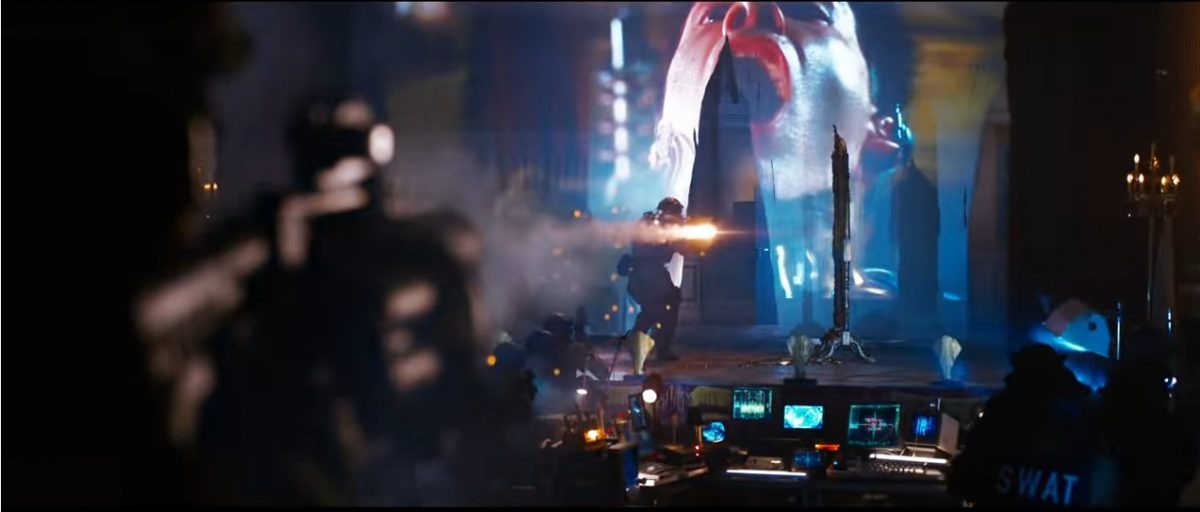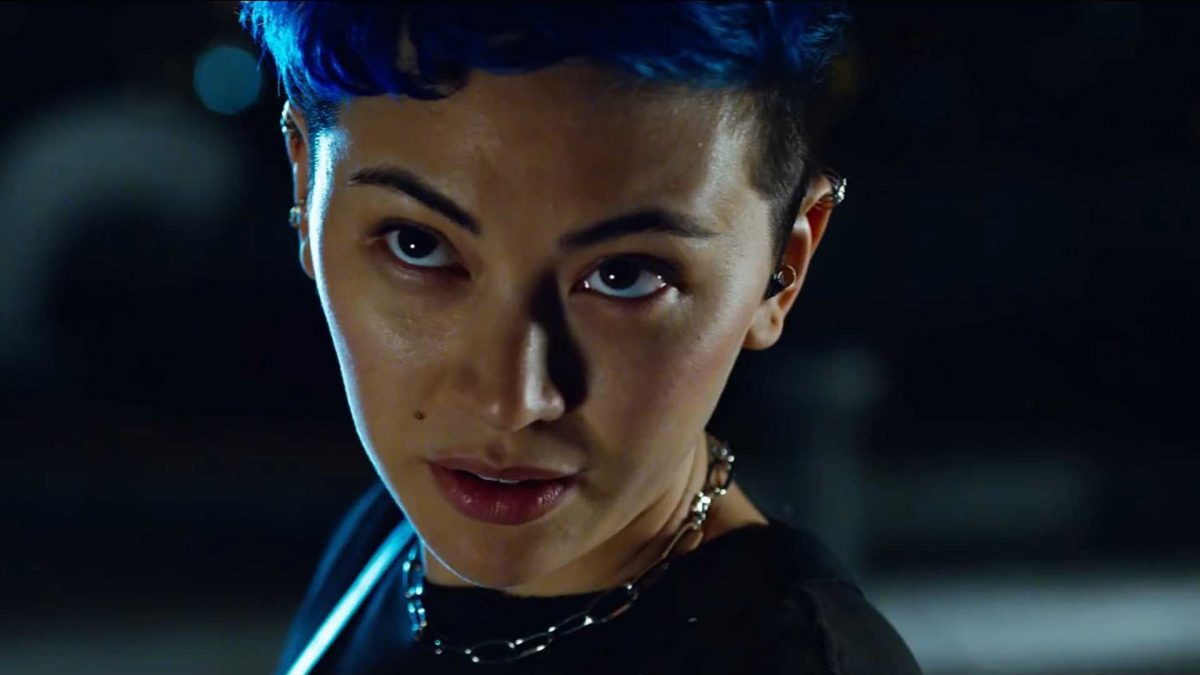Nearly 20 years since the franchise ended, The Matrix Resurrections has arrived to put a new spin on the nostalgia/legacy sequel genre while honoring the story so far.
It’s no secret The Matrix Resurrections has been one of my most anticipated films of the year (rivaled only by Dune). I’ve long been a fervent supporter of the original films and can frequently be found going to bat for the oft-maligned sequels. Even so, among all my hype, there was a degree of fear. Was there a way for Resurrections to continue the story and still feel fresh?
The answer isn’t cut and dry, but the result is a film I loved a whole lot.
The Matrix Resurrections
Directed By: Lana Wachowski
Written By: Lana Wachowski, David Mitchell, Aleksandar Hemon
Starring: Keanu Reeves, Carrie-Anne Moss, Yahya Abdul-Mateen II, Jessica Henwick, Jonathan Groff
Release Date: December 22, 2021 in Theaters and HBO Max
Generally speaking, I’ll be avoiding some major spoilers for the film. That said, I won’t be sticking to my normal “spoiler free” format as adamantly as usual. Some of my favorite elements in the film were things left out of the trailers (nothing too huge) and something I think people on the fence would want to know more about. So if you’re looking to go into the film 100% blind, maybe you should come back later.
Still here? Let’s dive into the Matrix!
Before anyone asks, yes, Matrix Resurrections is a direct continuation of the series so far. It doesn’t ignore the sequels (like other legacy sequels tend to do), but rather incorporates them in a new way that gives the audiences some wiggle room if they aren’t completely caught up on everything.
The film finds us confronted with Thomas Anderson, better known as Neo, who isn’t the savior of the world…but a video game designer. A rather famous video game designer who, 20 years prior, created The Matrix. This “trilogy” of games completely changed everything and rocketed him to fame and fortune, leaving an impact on all who played it. Now, a couple decades later, even as he is currently working on his next gaming project the parent company he works for is demanding a return to the franchise that made him famous.
Anderson is opposed to it from the start, and for the last few years has worked to distance himself from his original masterpiece. Mostly, that’s due to the fact it seems to be related to some severe mental break where he was no longer able to separate reality from fiction…

Personally, I loved this approach. In fact, it’s almost exactly what I theorized could be happening in the film (though I thought he’d be an ACTOR who starred in the movies, rather than a game). In many ways, it feels completely in line with what the machines from the previous films would do. The entire system of The Matrix was built on the idea of control. Even “the One” was a measured means of control to keep even unexpected anomalies in line.
As such, this approach to the story felt entirely logical. It’s not easy to pick up things from where the previous films left off. Somehow, though, Resurrections‘ super-meta, sometimes goofy plot device, manages to bring it together in a way befitting both the previous films AND the new story being told.
As Morpheus once said, however, he’s been “living in a dream world.” The Matrix Anderson finds himself in now, which takes the form of our modern world, is a different version of the Matrix the original films took place in. As we learned from the trailers, Neo and Trinity (we’ll come back to her soon) were reinserted into the Matrix after their sacrifice in Revolutions.
The machines kept them hidden away, using them to build a new, more efficient, version of the construct designed to provide power to their cities. Instead of making things how they were, however, the machines (specifically the newest one in charge) presented the events of the previous films as a work of fiction that happened within the world. In this way, they’re able to keep control over Neo by telling him the “truth” of what happened, but presenting it in a way that makes him more accepting of it.

Any question about his own reality can thus be written off as the overactive imagination of a lonely genius. But Neo is…well, Neo, and containment isn’t his thing. With the help of Bugs (Jessica Henwick who absolutely steals the show and deserves a movie dedicate to her character) plus a new version of Morpheus (Yahya Abdul-Mateen II), Neo manages to once again escape the confines of the Matrix and re-enter the real world.
The world, however, has vastly changed. This is where I felt Resurrections was the most interesting. In the previous films, Neo never got to see the results of his sacrifice. He was never able to see the peace that happened (or if the machines even stuck to their promise), nor the aftermath of the war finally coming to an end. In this way, Neo’s return is once again a “fish out of water” experience that puts the audiences in his point of view as he discovers how much as changed in the decades since his “death.”
It is here that Lana Wachowski’s storytelling prowess stands out. The world building that takes place in Resurrections is impressive, and reminds me so much of what made the original film stand out. The film doesn’t seek to over explain the current status of the world and what’s going on (though it might feel like it at some points), but lets everything just…exist. Audiences can either accept the things they’re seeing, or not.

There are a number of offhand comments various characters make (e.g. no longer needing phone booths) that seemingly wave off explanations about all the changes that have happened since the previous films. They’re handled in a way that you just accept the info for what it is, rather than looking for a deeper explanation down the road. This is true even when it comes to the quick flashbacks and exposition dumps we’re given throughout the movie.
This is a more subtle brand of world-building, and the effect is immediate. The ideas/concepts presented do a great job of making the world feel larger than the story being told; something living and breathing beyond the confines of the franchise’s runtime. The film strikes a delicate balance between incorporating these elements enough to give you the sense of a larger world, without making anything feel like a dangling/abandoned plot thread.
It’s not something many big-budget movies are able to do (even Marvel struggles, but has subsequent movies to help ease the load). As such, it’s all the more impressive to see how Resurrections does it. Sure, it uses the knowledge of the previous films to bypass certain world-building aspects (taking them for known elements) but even newcomers can easily pick up the ideas being shown and still have fun.

Anyway, the problem with Neo’s latest awakening, however, is Trinity is still connected to the new Matrix system. Neo’s war is over. He did what he needed to do and he’s tired of fighting. From his perspective, he’s earned his own chance to live and be happy. He can’t do that with Trinity. As the film’s primary villain at one point bluntly puts it, there is no Neo without Trinity. None of it works without the two of them together.
Thus, the heart of the film is about Neo finding a way, along with his newest allies, to get Trinity back out of the Matrix. It’s probably this aspect that I enjoyed the most in the film’s story. It really cuts to the heart of what the franchise has always been: a way to explore large ideas/themes through the lens of a more intimate story. Specifically, a love story.
One could argue, as I have, that the core of The Matrix films in general has always centered on the love story between Neo and Trinity. Sure, the overarching story of man versus machine, a war to save humanity, and the nature of free will are key themes. They’ve always been presented, however, within the context of this relationship.
![]()
Hell, even in Matrix Reloaded, we see Neo choose saving Trinity over the primary duty of “the One” to restart the world/re-founding of Zion. In Resurrections, that relationship is once again at the forefront; perhaps even moreso now that the life-ending war isn’t a central aspect to worry about.
Resurrections follows many of the same story beats as the original film, but there are key differences that take the story in all new directions. Because of this, you get the nostalgia element, but the also get something fresh out of the experience. It’s a neat play on the legacy sequel genre in general. It knows exactly how it’s playing into certain tropes/cliches, but does them anyway to serve the brand new story. Honestly, it feels like the kind of story that would really only work for something like The Matrix.
Now, there is a certain “elephant in the room” we should discuss. The action. Like many of my fellow reviewers out there, I found the action sequences a tad on the mediocre side of things. This is not to say they are bad. In fact, there are still plenty of “holy shit” moments throughout the film that had me gasping and cheering. However, in a franchise that was known for redefining the action genre, and ushering in a new era of martial arts films in the West, Resurrections just doesn’t measure up.
Nothing about the fights, or major set pieces, feel particularly unique/fresh. They’re “fine” and engaging, but feel like scenes you could find in any modern action flick. The absence of the original films’ fight/stunt coordinator is keenly felt here. The early fight between Neo and Morpheus (a somewhat recreation of their Dojo battle in the first movie) was technically impressive and featured some solid techniques, but the composition of the shots/editing made it feel plain and simple.
Hell, even in one of the film’s first scenes (a recreation of Trinity’s opening fight in the first film), things felt kind of dry. Something was missing. Even though the moves/choreography were basically the same, the way it was shot dulled it.
Even in this regard, I had a hard time NOT loving my experience with the film. While they aren’t “genre-defining,” the action throughout the film is more than passable and should hold up to multiple viewings. The real meat of the film lies in the story being told and how Neo and Trinity once again find each other. It’s clear Keanu Reeves and Carrie Anne Moss are having a blast revisiting these characters. It’s almost eerie how seamlessly they pick up the story and characterizations even 20 years later.
![]()
I did a re-watch of the trilogy (something I do fairly regularly), and I was impressed with how Resurrections flowed right into the story overall. It genuinely didn’t feel like it had been almost 20 years between the last two movies. Rather, it felt like the only continuation to the story there could have been.
Much like the previous films, the feeling I felt as the credits rolled was hope. Hope, and a strong desire to know more. Not necessarily because the film left stuff out I felt was important, but because I didn’t want my time within this world (with these characters) to come to an end. It’s hard to imagine a better goal for this type of legacy sequel to accomplish.

